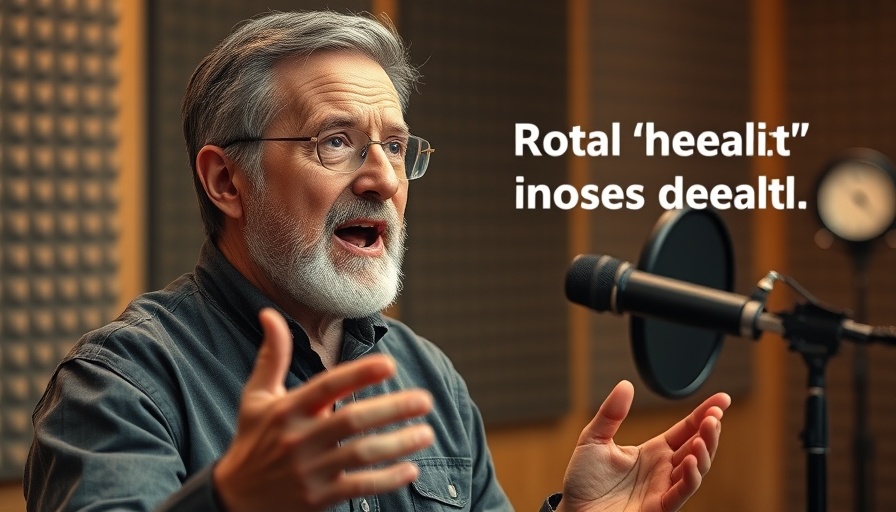
The Disturbing Link Between Toxins and Alzheimer’s Disease
As research continues to unfold, the relationship between environmental toxins and Alzheimer's disease has entered the spotlight. While Alzheimer’s is often seen as a genetic condition influenced by age, studies increasingly suggest that everyday toxins lurking around us might play a significant role in triggering or worsening this debilitating condition. In this article, we dive into what the research says and explore ways we might mitigate these risks.
In Toxins + Alzheimer’s: What the Science Shows, the discussion dives into how environmental factors may affect cognitive health, prompting us to explore critical insights and actionable steps.
What Are Toxins and How Do They Affect the Brain?
Toxins are harmful substances that can be found in everything from air pollution to heavy metals in our food and household products. They can lead to oxidative stress—an imbalance between free radicals and antioxidants in the body—which has been associated with brain cell damage. Over time, this damage can contribute to the development of Alzheimer's disease, leading to memory loss and cognitive decline.
Current Research and Findings
Recent studies have turned attention to specific toxins, such as lead, mercury, and pesticides. For instance, an important piece of research published in the journal Environmental Health Perspectives highlights a potential link between exposure to certain pesticides and an increased risk of developing Alzheimer’s. The study found significant correlations between prolonged exposure and cognitive deterioration. Neurotoxic substances affect our brains, and the implications for populations exposed to these toxins are concerning.
Real-Life Examples and Anecdotes
Consider the city of Flint, Michigan, where residents grappled with lead-contaminated drinking water. Reports reveal increased cognitive struggles among the youth exposed to these toxic environments. Their stories highlight not just the impact of lead but also an alarming trend—that environmental factors are now becoming a conversation starter in communities about health and wellness.
Strategies for Reducing Exposure to Toxins
Knowing the dangers is only the first step. Here are practical strategies to help limit exposure to toxins:
- Choose Organic Foods: Opt for organic fruits and vegetables to limit pesticide exposure.
- Air Purification: Use air purifiers and maintain good ventilation in homes and workplaces to reduce air pollutants.
- Mindful Consumerism: Be aware of chemicals in everyday products, opting for natural alternatives when possible.
Future Predictions: What Lies Ahead?
As we continue to study the environmental impact on cognitive health, a groundswell of change is anticipated. Policymakers are increasingly urged to prioritize regulations around toxin emissions and protective health measures. There’s hope that tighter restrictions on certain pesticides and pollutants could lead to healthier communities and significantly better outcomes regarding dementia and Alzheimer's rates in the future.
Empowering Community Action
Communities can band together to raise awareness about the risks of toxins. Local groups can petition for cleaner environments, emphasizing the need for educational resources. The more informed the public is, the stronger the push for regulatory changes will be.
In summary, toxins in our environment may be more than just a nuisance; they could be putting us on a path to cognitive decline. By understanding these risks and taking proactive steps to mitigate exposure and raise awareness, we can take control of our health narratives—especially as we navigate new science like the findings discussed in the video Toxins + Alzheimer’s: What the Science Shows.
 Add Row
Add Row  Add
Add 




Write A Comment